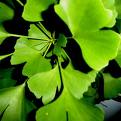
London: Complementary health expert Jayney Goddard today defended the reputation of herbal medical remedies following a recent study labelling them as “hocus pocus”.
In a new book published by Collins, Goddard, founder and president of The Complementary Medicines Association examined 10,000 scientific trials to reveal that a wide range of herbal medicines are effective.
The evidence in the book Complementary and Alternative Health: The Scientific Verdict on What Really Works, she says, is proof that herbal medicine cannot be ignored by the medical establishment.
“This book is, essentially, a vast encyclopaedia which encompasses virtually every aspect of complementary medicine and draws from data accrued from over 10,000 scientific trials,” says Jayney.
It is a book which will be absolutely invaluable to everyone involved in complementary medicine and alternative therapies. It is also essential reading for anyone who is interested in using complementary therapies and wants to know just what the scientific evidence is, so far, for a particular approach.
One such supplement is St John’s Wort with Passion Flower that has recently been proven in a clinical trial to dramatically reduce depression and anxiety quickly.
The trial shows without a doubt that this herbal supplement comprising 450mg St Johns Wort (Hypericum perforatum) and 350mg Passionflower (Passiflora incarnata) per daily dose can ease mild to moderate depression.
Significantly it shows a considerable reduction in depression and anxiety. The results were felt quickly – within two weeks of taking the supplement (St John’s Wort alone is recognised as achieving this reduction within four
to six weeks).
St John’s Wort is renowned for its effectiveness in treating mild depression but patients are advised it can take up to six weeks to take full effect. Passionflower is known to ease anxiety quickly. It is concluded that the combination of these two herbs in this synergistic supplement brings about a reduction in BOTH depression and anxiety.
The trial was double-blind, placebo controlled and randomised and 162 people took part. They were classified as either mildly depressed (14-17 on the Hamilton Scale of Depression – HAMD) or moderately depressed (18-24 on the HAMD).
The Hamilton scale runs from 0-30: In light depression HAMD-17 total scores sum 8-13.
A score between 14-18 is mild depression
Between 18-24 is moderate severe depression
And 25 or more is severe depression
The patients took either the St John’s Wort and Passionflower combination or a placebo for eight weeks during which time their HAMD and HAMA (Hamilton Scale for Anxiety) were measured
– Those on the supplement showed significant improvement
– Those mildly depressed went from around 15 on the scale to 8
– At the same time the placebo group worsened from around 15 to 17
– Those moderately depressed went from around 20 to 8 (within the
time scale)
– At the same time the placebo group worsened from around 20 to 21
– After 56 days the placebo groups were crossed over, so the placebo
group took the supplement.
– When the placebo group switched to taking the supplement they saw a
drop of 39.6% and 31.6% in their HAMD and HAMA ratings respectively with
a major drop in both showing within four weeks
SO WITH FINDINGS LIKE THIS HOW CAN IT BE SAID THAT HERBS DON’T WORK?
Many herbs, quite clearly, DO work and there are trials to prove it, says Jayney Goddard. Across Europe and in Germany in particular, we see alternative medicine taken very seriously indeed. Its about time that sort of attitude was given air time and breathing space in the UK where we have some first class products that can be trusted to work effectively and safely when taken in the recommended way for the specified conditions.
NOTE TO EDITORS:
Complementary and Alternative Health: The Scientific Verdict on What Really Works is available at the www.the-cma.org.uk and good book shops priced £19.99.
